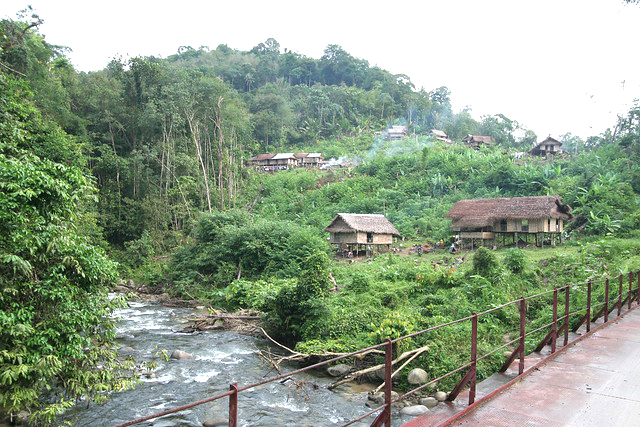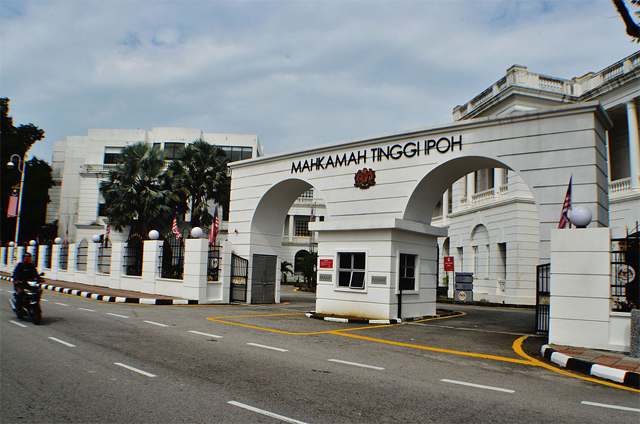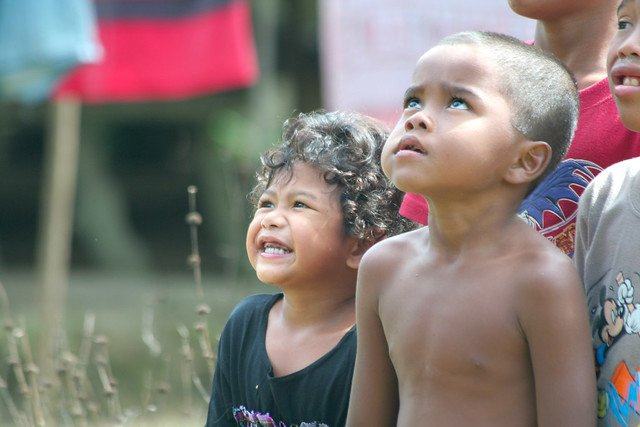Malaysia’s Perak state has decided to go ahead with the construction of a hydropower dam on the Geruntum River, despite the fact that it will harm the lands of a group of Semai villages.

The Semai in the town of Gopeng have expressed their opposition to the dam-building project since it was first announced by the state in 2012. According to a news story in June 2018, the project began to get a lot of news coverage when the Semai launched large, but peaceful, demonstrations protesting the destructive practices of the construction firm doing preparatory work along the river for the dam.
The news report indicated that politicians from the Pakatan Harapan party had promised in their election campaigning that it would “respect the customary lands, cemeteries, and properties used for food production by the Orang Asli”—in essence, giving the impression that the dam project would be set aside if they won. They did win the national elections held on May 9, so, for the Semai, hope was in the air—their riverside crops and lands would be safe. But just to make sure, they filed a suit in the High Court for Perak, located in the state capital, Ipoh. The state announced on June 7 that it was putting the dam on hold pending further studies.

A news story from Malaysia on Tuesday last week, April 2, indicated that the new PH state government is planning to renege on its promises to the Semai and proceed with the construction of the dam. Speaking to reporters at an event in Ipoh, Abdul Aziz Bari, the chair of the Education, Science, Environment and Green Technology Committee for the state, said that the new government was, in his opinion, bound to honor the written commitment made by the previous Barisan Nasional government to the company planning to build the power plant.
“In legal terms” he said, “we cannot simply do away with or simply dishonor the agreement that has been made by the previous administration.” The previous government had signed an agreement with Perak Hydro Renewable Energy Corporation (PHREC) for the construction of the hydropower plant in the river.

According to the news report, Abdul Aziz said he had gone to the Ulu Geruntum communities a couple weeks ago to reassure the Semai that they “will not be sidelined.” He also sought to convince the people that any complaints they might have will be addressed. The news story did not indicate if he was concerned about the support promised to the Semai last year. He stressed during his news conference the importance of the government following the rule of law—which would seem to equate government commitments to corporations more than to indigenous people.
Abdul Aziz addressed complaints about the project made by white-water rafting companies that use area rivers for their business. He said he was told that their complaints were not due to the hydropower project but to upstream logging. This differs from the news stories last June which reported that the contractor working on the dam had polluted the river earlier due to not properly following an erosion and sedimentation control plan.
The reporter concluded the story last week by mentioning the suit filed in the state’s High Court in Ipoh last year by the Semai against the Malaysian government, the Perak state government, the PHREC, and others. The Semai suit seeks protection for their customary land rights. It appears from the recent article as if the state is ignoring the legal suit for the moment and announcing their plans for when and if the court finds against the Semai.